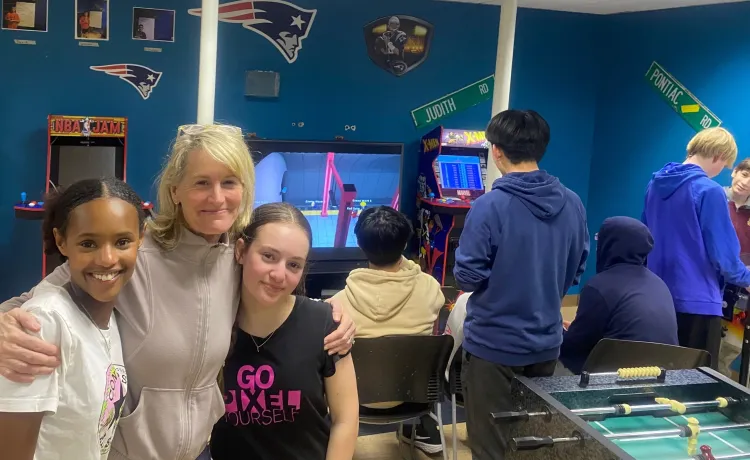At the Y, we understand that being a teen comes with its own set of challenges, from managing stress and emotions to navigating tough times like grief or anxiety. We're here to support teens in every aspect of their well-being, offering resources, programs, and a welcoming community where they can feel safe and understood. Whether it's through teen events, camp leader opportunities, or simply offering a space to connect and recharge at the Teen Center, the Y is committed to helping teens build resilience, make connections, and thrive.
Teen Resources
Hey Sam, Samaritans (Peer-to-peer support). Text 877-832-0890, 9 AM-9 PM
Riverside Emergency Services (24/7 emergency hotline for mental health crisis)
Call: 800-529-5077
SAMHSA (Substance Abuse & Mental Health Services Administration)
800-662-HELP (4357) - SAMHSA.gov
Love is Respect (Heathy Relationships)
call:866-331-9474
Text: LOVEIS to 22422
The Trevor Project- Get Help (Free and Confidential)
(LGBTQ Information & Support)
Call: 866-488-7386
Text: START to 678-678
Tempo Young Adult Resource Center
(A one-stop resource center helping young adults 17-245 transition to adulthood)
Call: 508-879-1424
Tips for Teens Who are Grieving
Boston Area Rape Crisis Center
Call: 800-841-8371
Planned Parenthood
Call: 800-230-7526
Multiservice Eating Disorder Association
Call 617-558-1881
National Runaway Hotline
Call: 800-786-2929
How Parents Can Help
Parents and families have a powerful role in supporting children’s learning, mental health, and emotional well-being at home and at school. When parents are engaged in their children’s school activities and initiatives, children get better grades, choose healthier behaviors, and have better social skills. Students who have parents involved in their school lives also are more likely to avoid unhealthy behaviors and they are less likely to be emotionally distressed.
You can help support your child’s mental health and emotional well-being at home. Try incorporating simple strategies at home like asking about your child’s feelings, focusing on their strengths, and modeling positive coping skills to manage stress, like going for a walk. Find more information with a toolkit from the CDC.
Parent Resources
Talking to your child about stressful events



